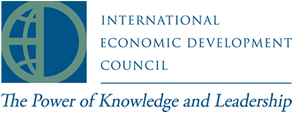 The International Economic Development Council is hosting two courses in collaboration with the MN Economic Development Foundation in September. These were originally planned to be in person courses, but due to COVID, they are moving to an online format.
The International Economic Development Council is hosting two courses in collaboration with the MN Economic Development Foundation in September. These were originally planned to be in person courses, but due to COVID, they are moving to an online format.
The MNEDF will be offering scholarships for EDAM members for these two courses on a first come first served basis. To submit an application, please go to the Scholarship page of the MNEDF Website. More information regarding the two courses is available below:
Real Estate Development and Reuse – September 22-23 (Core Course for IEDC Certification)
This course clearly articulates the eight stage process for real estate development and reuse. Specifically, course participants will learn the fundamentals of market and site analysis, financial feasibility, and what political considerations are required to move a development project from conception to realization. Additionally, this course will cover a wide variety of financing tools that are available at the local, regional, and state levels, including tax increment financing, bond financing, tax credits, tax abatements, land assembly, and brownfield redevelopment. Multiple in-class case studies will be used to help participants work through actual financial and regulatory problems.
Course Highlights:
• Housing, retail, office, industrial, hotel, and mixed use development
• The regulatory and approval process including zoning and permitting
• Assessing community involvement and political feasibility
• Public, private and nonprofit financial modeling
• Understanding the pro forma operating statement structure
• Property valuation and capitalization rates
• Brownfield redevelopment phase structure and liability
• Request for qualification/proposal process
Neighborhood Development Strategies – September 24-25 (Elective Course for IEDC Certification)
This practitioner-driven course uses the case study method to complement current neighborhood development theory. Participants will learn how to identify the major neighborhood actors, their objectives, and strategies for redevelopment, in addition to understanding the process for creating a strategic economic development plan to meet the neighborhood development goals. Specifically, this course will examine social capital (e.g., linkages, networks, talent, etc.), environmental capital (e.g., stewardship, residual management, etc.) and economic capital (e.g., investment and reinvestment) facing distressed neighborhoods and offer solutions to address local needs.
Course Highlights:
• Asset creation, wealth creation, and enterprise development & expansion
• Housing development, real estate speculation, and tax-base stabilization
• Public and private sector role in combating inner city unemployment
• Examining historical and current neighborhood trends
• Performing leakage assessments and gap analyses
• Aligning strategic plans for multiple neighborhood groups
• Understanding the underserved needs for banking and grocery
• Working with media to share success stories